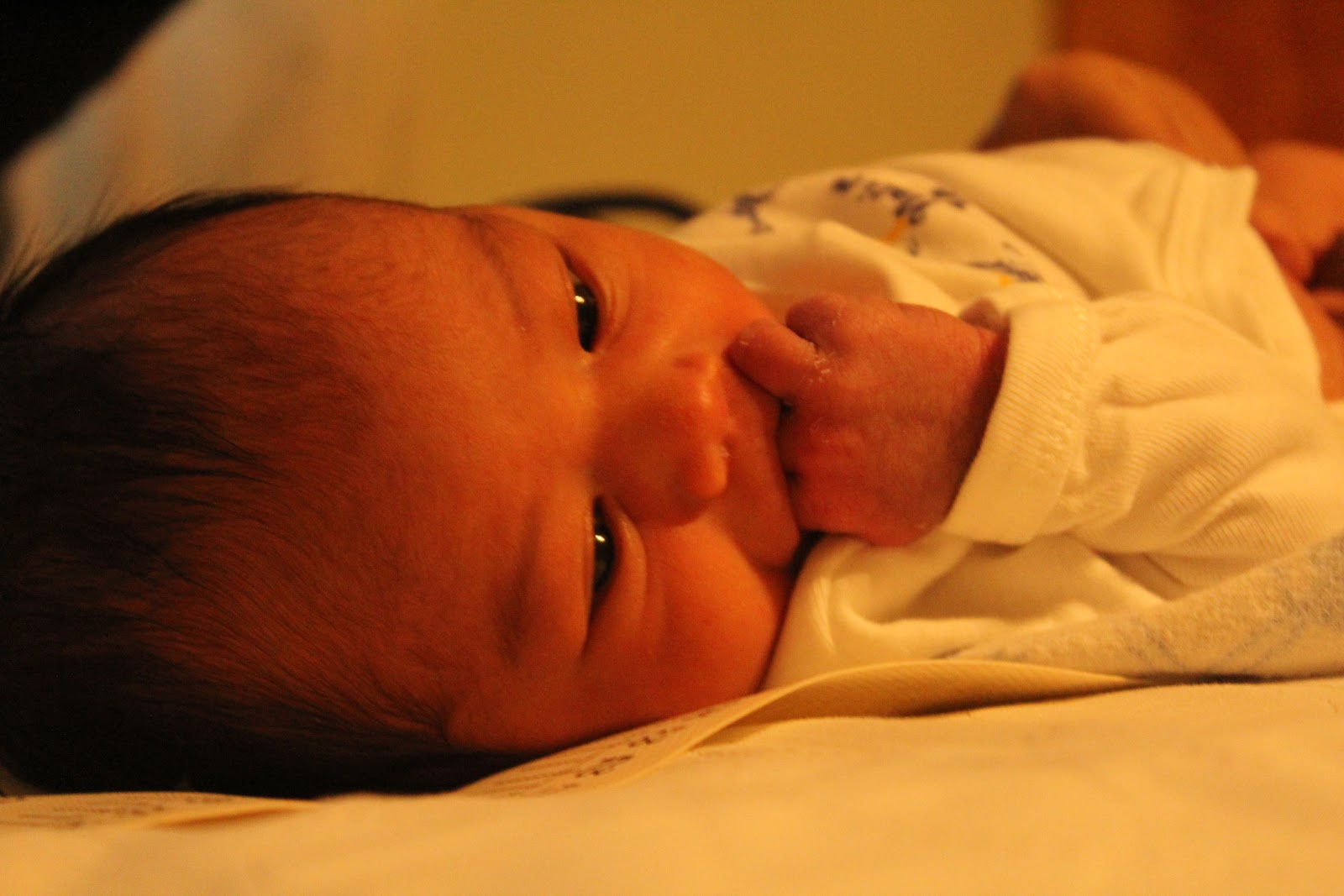One of
the girls is sixteen years old, pregnant, and expecting her first
child. Her husband is seventeen or eighteen, and they are both very
happy to be expecting a baby. She has always been punctual,
responsible, and enthusiastic in her pre-natal classes and
appointments. Because they are very poor, living with her mother and
siblings, Casa Compasiva chose her as the winner of the “free birth
prize” that we were promoting for our clients during the month of
May. Please pray for Ana (name changed for privacy) and for her
baby's upcoming birth in August.
Another
of the girls, who is also sixteen, was a stranger to me until the
night she went into hard labour. Her family was scared and unsure of
how to help her, so her sister-in-law went out in the night to get
help. They had never heard of Casa Compasiva, but knew from a friend
that I lived nearby and was (sort of) a midwife. When I arrived at
her mud-brick, one-room, cement-floor house, I showed her how to
breathe and relax with the contractions. After teaching her
twenty-year-old husband how to rub her back and support her in
labour, I drove home up the dirt road just before a thundering
rain-storm hit us hard.
Back
home I called our doc and Casa Compasiva midwives to see if we could
possibly take her as a CC client, but the decision was a negative
because we had no lab work on her, and no pre-natal records. Two
hours later, just before midnight, her family called asking me to
come back. When I arrived the second time, she was in heavy labour,
and it was obvious that it was time to go. So she, her husband, her
mother, and her mother-in-law all loaded into my Ford Explorer and we
set out for the hospital in a nearby town.
Unfortunately
their hospital of choice provided the classic example of how the
indigenous people are often dis-respected and mistreated by the
medical establishment. The nurse who received them was indifferent
and cold; the doctor was rude and verbally abusive--so much so that I
couldn't even look at him. After I left them in his hands, to do
with what he would, I cried in frustration on my way home. I knew
that he would not give her the chance of a normal birth, but would
automatically perform a Caesarean on her.
Sure
enough, the next morning I got word that the young mama had delivered
a baby girl via C-section because she was “too young” to have a
normal birth. The hospital would not discharge her and the baby
until they paid the bill, so the young husband was forced to go
around begging to borrow money from all their friends, family, and
neighbours. Now in debt up to their eyeballs, the young couple is
nevertheless happy with their new baby, and mama is recuperating and
nursing the baby well. When I went to visit, I was able to pray with
her, give a small financial gift, and present her with a gift and New
Testament from Casa Compasiva. Although they are very grateful for
my help, how I wish that we had been able to do more!
The
third young mama that I visited that day was also married and
pregnant by age sixteen. She is now nineteen, and facing the
realities of life with her three-year-old boy, her new baby girl,
and her husband away much of the time.
These
girls and many others like them in Oaxaca are so young, so
vulnerable, and, having little education, are so susceptible to
misinformation. Economically marginalized, they are more or less
content with their lives and the choices they have made, never
expecting anything better. We at Casa Compasiva recognize the
challenges that life will bring their way, and we long to be in a
position to minister health and abundant life through Jesus to them
and their families. The three girls I visited that day provided a
sampling of the young women of Oaxaca: some of them we are able to
reach, others just a little, some not at all.
Financial
constraints prevent us from being able to fully advertise our
services; thus, many are still unaware of Casa Compasiva. Like the
young girl in labour during the rainstorm, many women don't realize
that a better pregnancy and birth-care alternative like Casa
Compasiva even exists—until it is too late. We need better
advertising! We need an excellent, professionally-designed website;
we need a promotional strategy that will get the word out more
effectively!
Then
for those who do hear, but who are unable to pay, we need to be able
to offer “birth-scholarships” or really skookum discounts so that
they can afford it. We make our prices as low as possible to achieve
accessibility for the majority of clients, but the reality is that
for many women any price is too high. Somehow we need to be
able to serve them freely while still covering our expenses. Will
you help us to do more? Will you help us to help these young girls
of Oaxaca?
DONATE NOW



.jpg)
No comments
Post a Comment